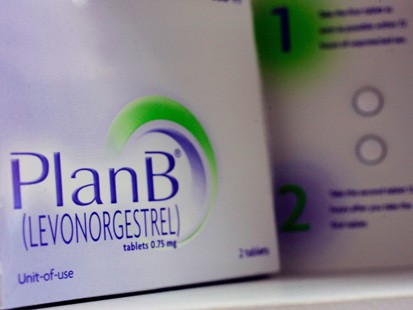 Decision to expand access to Plan B is the right one
Decision to expand access to Plan B is the right oneIt just makes sense.
Yesterday’s FDA decision – under a court order that decided the organization had bowed to political pressure in 2006 – to allow women 17 and older non-prescription access to the emergency contraceptive known as Plan B is a good one.
Young women face enough obstacles when dealing with the possibility of an unintended pregnancy. That the government decided to remove one of these barriers shows a move toward common sense, safety and responsibility.
What is Plan B? Well, I’m no doctor, but Plan B is basically a high dose of the same hormones contained in ordinary birth controls pills – levonorgestre. It is used as an emergency, or back-up birth control method, and is not intended for use as a primary contraceptive.
Because, let’s face it. Kids have sex. The Guttmacher Institute reports that most teens become sexually active around the age 17. But, by the time they’re 19, about 70 percent are sexually active.
Those opposed to the decision came out swinging with concerns that the drug isn’t safe.
Wendy Wright, president of Concerned Women for America, told onenewsnow.com that parents should be livid.
“Even well-known advocates (for Plan B) -- researchers in favor of the morning-after pill -- have admitted that it is very ineffective,” Wright points out. “It doesn't reduce pregnancies, and making the drug easy to get without a prescription neither reduces pregnancies or abortions.”
Researchers at Princeton University disagree.
“Labeling for Plan B and other emergency contraceptive pills that contain only the hormone progestin states that the treatment reduces your risk of pregnancy by 89%,” the university’s Office of Population Research reports. “This doesn’t mean that 11 percent of women will get pregnant using these pills. It just means that this type of emergency contraception prevents 89% of the pregnancies researchers would expect to happen when women don’t use birth control, their regular contraceptive fails, or they are forced to have sex (in other words, they have “unprotected sex”).
Moira Gaul, Family Research Council's Director of Women's and Reproductive Health, called the ruling a policy decision, not one based on science and reason and compassion.
Well, Ms. Gaul, a number of the world’s most reputable medical organizations and researchers HAVE based their decisions on science.
The American College of Obstetricians and Gynecologists, the American Medical Association, American Academy of Pediatrics and the American Association of Pharmacists have given their stamp of approval.
Collectively, that’s enough for me.

No comments:
Post a Comment